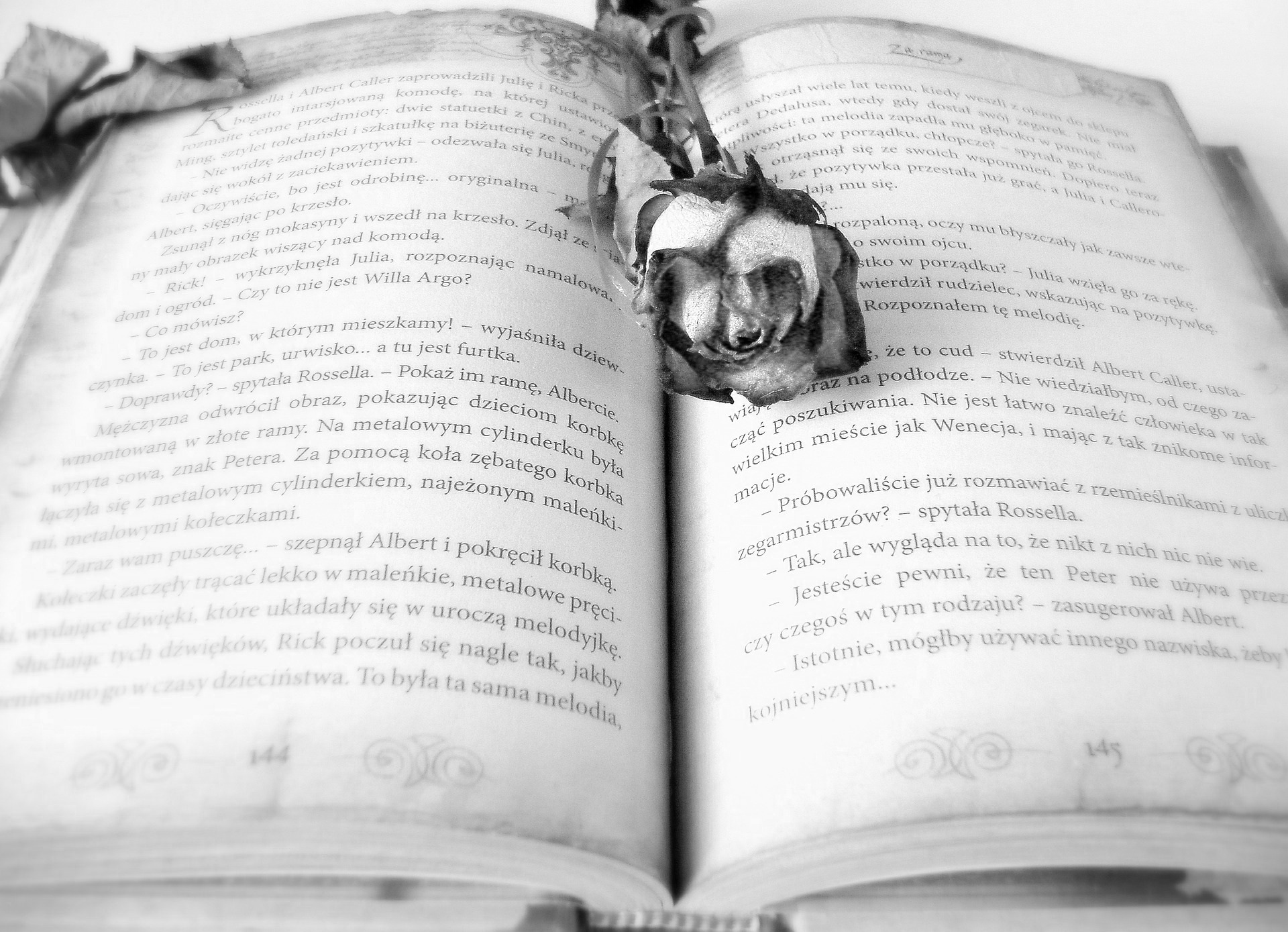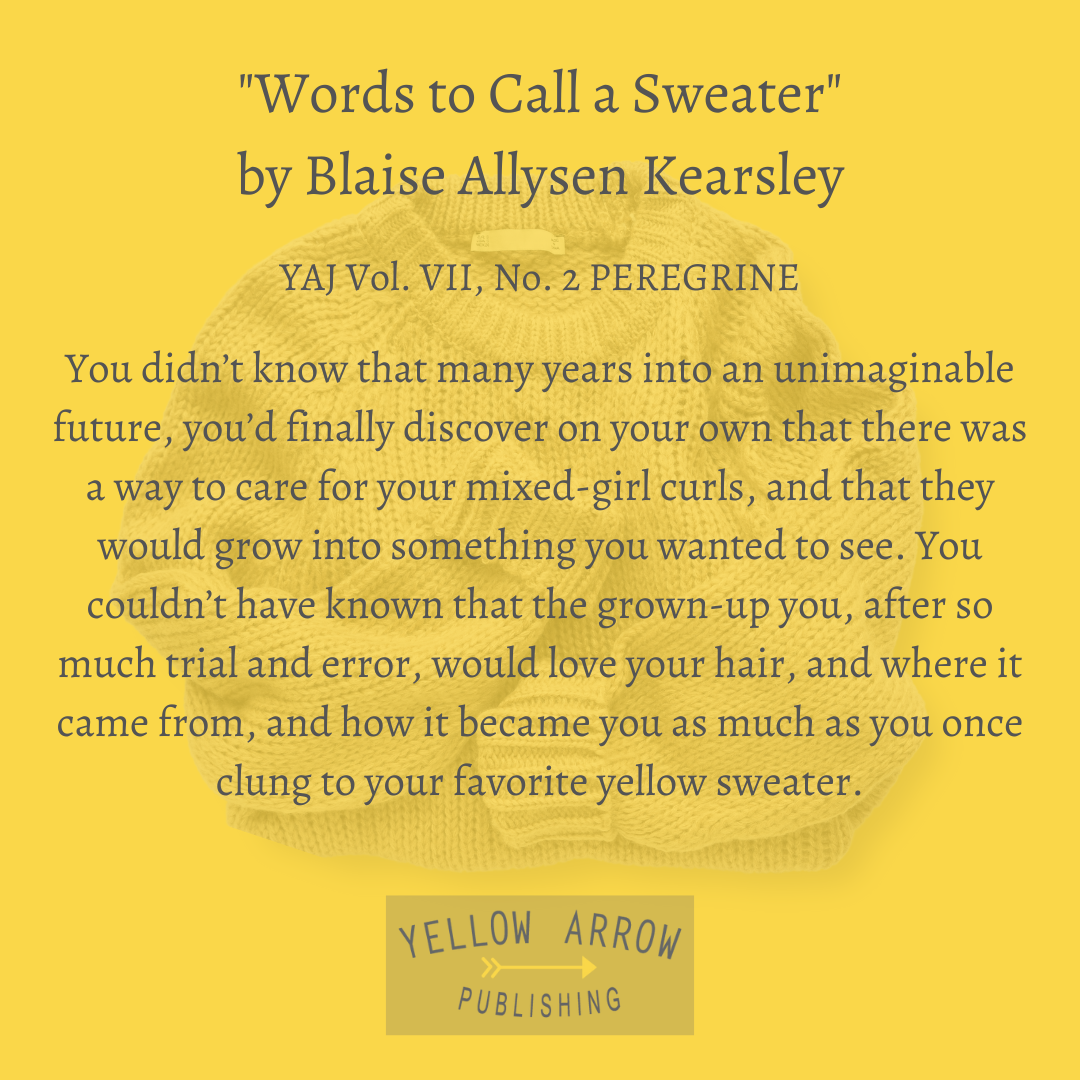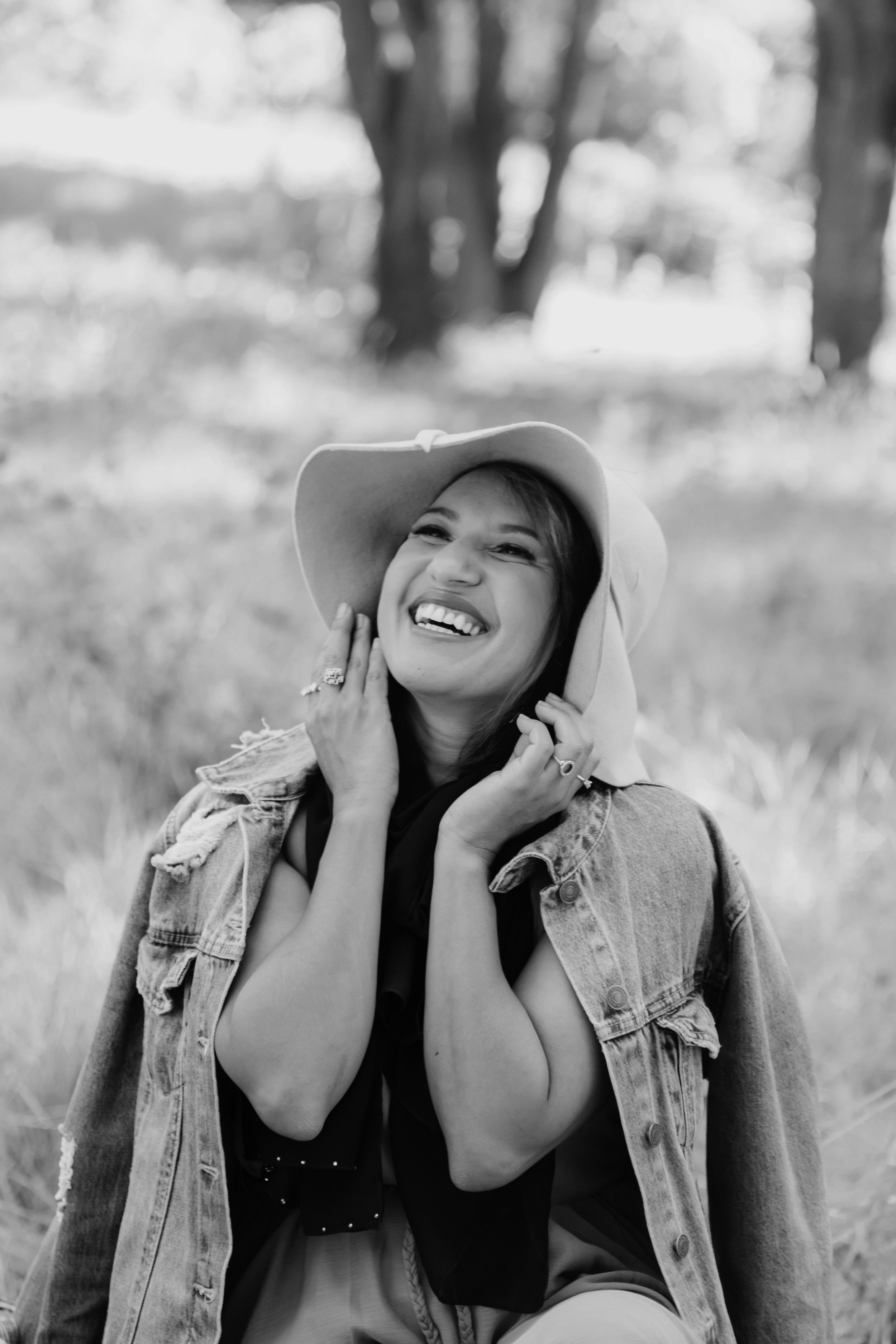
.WRITERS.ON.WRITING..Writers.on.Writing.
Get to know our authors, the foundation and heart of Yellow Arrow Journal, and what writing means to them through our monthly series.
W.o.W. #45
Keshnie July
What is a book you wish someone would write?
The Autobiography of a Brown Girl, which I plan to write
What is your writing Kryptonite? Your most interesting writing quirk?
I write like I speak and can sometimes use unnecessary words. My quirk is that I tend to overstate a point.
Describe an early experience where you learned that language has power.
I was always interested in learning new words. I would practice the words learnt in school in every day conversation. When I heard that one of the adults had said, “Who does she think she is using big, big words,” I realised that a child could not even practice a new word without being judged for it. More importantly it made adults uncomfortable.
What does your inner writing voice tell you?
“You have to write a book.”
Keshnie July is a happily married mother to two gorgeous children and lives in beautiful South Africa. She has written for herself, albeit off and on through the years. Her favorite is poetry, however she has always hoped to write a book one day. This opportunity has been a call to fulfill a longheld dream to write and share her work with the world. Her piece “What is in a Name?” was included in Yellow Arrow Journal, Vol. VI, No. 2, ANFRACTUOUS. Keshnie participated in “An Exploration of Belonging: The Anfractuous Reading” last year. You can hear her read part of “What is in a Name?” below and find the reading in its entirety on the Yellow Arrow YouTube channel.
Find Keshnie on Instagram @keshjuly or Facebook @keshnie.july.
.Writers.on.Writing.
Get to know our authors, the foundation and heart of Yellow Arrow Journal, and what writing means to them through our monthly series.
W.o.W. #44
Blaise Allysen Kearsley
What is the first book that made you cry?
I feel like it may have been The Bluest Eye. Not only because of the story’s deep sorrow but because of the ways in which Pecola Breedlove demands to be seen. And the way Toni Morrison made me feel seen, and all the ways in which I felt that this book was for me at that time. I was at a predominantly white school in a predominantly white neighborhood. It was just an all-around profound, personal experience. At the moment, I can’t even remember a book I read before that had such an impact. Except for some of the children’s books I read when I was little. They make me cry as an adult.
What is your writing Kryptonite? Your most interesting writing quirk?
It’s in the details. The remembered images. Like, for my birthday recently, I invited friends to see the premiere of the Bowie film, Moonage Daydream, and dinner and drinks afterward. My friend Erica, also a writer and someone I’ve known since elementary school, said a movie birthday was old school. I hadn’t thought of that when I planned it, I was just looking for something fun to do. But when she said that, I told her maybe I needed to pack party favors in little paper bags with Snoopy sitting on the roof of his dog house emblazoned on them. She said, “As usual, you’ve got the details just right.” I don’t know if that’s the best example, but I do know those little details come pretty naturally to me. Those little details live in my brain like useless trivia might live in someone else’s. Little details are big.
What word do you find yourself using most often in your writing?
In high school, it was “sinister,” which makes me laugh now. But with affection. Now? “Perpetual” comes to mind. I know I used it in this interview.
What does your inner writing voice tell you?
“You’re a writer.” It took me a long time to own that.
Blaise Allysen Kearsley included her creative nonfiction piece “Words to Call a Sweater” in Yellow Arrow Journal PEREGRINE (Vol. VII, No. 2). Blaise is a Brooklyn-based Black-biracial writer and teacher and the creator/producer/host of How I Learned, a long-running storytelling, comedy, and reading series. Find her on Instagram, Twitter, or Facebook and online at blaiseallysenkearsley.com.
.Writers.on.Writing.
Get to know our authors, the foundation and heart of Yellow Arrow Journal, and what writing means to them through our monthly series.
W.o.W. #43
Hana Worku
Describe an early experience where you learned that language has power.
Somewhere in second grade I realized that other students at the school weren’t saying the same Pledge of Allegiance that we said in my classroom. It looked the same from the outside. Students would stand up, face the flag, hold up a hand, and spit out a bunch of words in sing song recitation. However, it was only in our classroom where students said, “I pledge allegiance to the world and every living thing. One world. One planet. With peace, freedom, and justice for all.”
It was only after a lunchtime discussion with second graders from other classrooms that I understood that my teacher, Ms. Peters, wasn’t following the rules. She wasn’t doing what everyone else was doing. With a few small changes, she had changed the entire meaning. Knowing this made me really think about the words we were reciting and what they actually meant.
What is a good writing habit you have picked up?
The idea of the bone pile or the compost—a place you can just jot ideas or throw stuff that you aren’t sure what to do with or you don’t want to delete but you need to remove. Later you go through the bones/compost and find new growth. It works well for someone like me, I often get distracted, while in the middle of writing, by shiny new ideas or old, nascent memories. This practice gives me a place to put that stuff.
What does your inner writing voice tell you?
You have to write to know what you want to say and why.
Hana Worku is a writer, software developer, and organizer interested in how things are put together. Yellow Arrow Journal PEREGRINE (Vol. VII, No. 2) includes her poem “Still Loading.” You can find Hana on Instagram and Twitter @hanawulu.
.Writers.on.Writing.
Get to know our authors, the foundation and heart of Yellow Arrow Journal, and what writing means to them through our monthly series.
W.o.W. #42
A’Eysha Kassiem
Describe an early experience where you learned that language has power.
I am a black woman who grew up in Apartheid South Africa. Apartheid was not just a system designed to oppress and discriminate, but it also classified everyone who was not white as lesser. There were various derogatory terms that white South Africans used to refer to people of color to reinforce their otherness. I was nine years old when a white boy used this terminology in reference to me—an insult that was meant to inflict harm in a way like nothing else could. It was my first lesson in how words can also be weapons that are sometimes harder to heal from than any physical wound.
If you didn’t write, what would you do?
I would be an archaeologist—I love history and exploring ancient ruins. So a black, female, Muslim, South African Indiana Jones (hit me up for a script, Netflix! Wink wink!)
What does your inner writing voice tell you?
Me: This sentence is brilliant!
Also me: This is the worst sentence that has ever been written in the history of the world!
A’Eysha Kassiem is an award-winning South African writer and journalist, whose work has appeared in several international publications. Her debut novel, Suitcase of Memory, was awarded the 2022 University of Johannesburg’s Creative Writing Fiction Prize for a debut novel. Her piece “The Suitcase” was included in Yellow Arrow Journal, Vol. VI, No. 2, ANFRACTUOUS. A’Eysha participated in “An Exploration of Belonging: The Anfractuous Reading” last year. You can hear her read part of “The Suitcase” below and find the reading in its entirety on the Yellow Arrow YouTube channel.
You can find her on Instagram @aeyshakassiem and @suitcase.of.memory, on Facebook @aeysha.kassiem, and on Twitter @a_kassiem. Visit her website at aeyshakassiem.com.
.Writers.on.Writing.
Get to know our authors, the foundation and heart of Yellow Arrow Journal, and what writing means to them through our monthly series.
W.o.W. #41
Andrée Rose Catalfamo
Do you prefer handwriting or typing?
Each of these kinesthetic acts stimulates a different part of my brain. I handwrite in my journal, especially when I’m trying to break through with an idea or when I’m feeling stuck. I also handwrite first drafts of poetry. I type when I am drafting or revising. I feel like handwriting is more circuitous and flowing, and typing is more direct.
What does your inner writing voice tell you?
Be honest. Tell the truth. Don’t be afraid. Do I need that comma?
Describe an early experience where you learned that language has power.
I spent my preschool years in Highlandtown, East Baltimore, where my grandmother would babysit me while my parents worked. From the time I was old enough to sit on her lap, Grandmom would read to me. I remember the colorful, hard cardboard covers of the Golden Books she’d buy and read, time and again. Soon, I could read them for myself, and then Grandmom started taking me to the Enoch Pratt Free Library branch on Eastern Avenue. It wasn’t long before I realized that books had the power take me anywhere I wanted to go. I was especially attracted to any and every story book that had a foreign locale or where the protagonists were embarking on a trip. I’d check out books 10 at a time and beg to go back to the library two or three times a week. And not too long after that, I started writing and illustrating my own stories, which all of my friends in school wanted to read because I’d put kissing scenes in them. I realized then that as a writer, I had the power to make people feel things.
Andrée Rose Catalfamo is a writer and instructor working in creative nonfiction, fiction, and poetry. Although she holds both a doctorate and a master’s degree in education, last year she returned to Wilkes University to begin a masters in creative writing. Somehow, she is managing to teach rhetoric and composition at SUNY Cortland while pursuing her studies and working on a memoir. A Baltimore native, Andrée misses Fells Point, crabcakes, and the Visionary Art Museum, as well as her family and friends. She lives happily with her husband, the poet Burt Myers, in Binghamton, New York. Her piece “Blooms” was included in Yellow Arrow Journal, Vol. V, No. 2, HOME.
Andrée recently had a chapter appear in A Lovely Place, A Fighting Place, A Charmer: The Baltimore Anthology (2022, Belt Publishing), edited by Gary M. Almeter and Rafael Alvarez.









